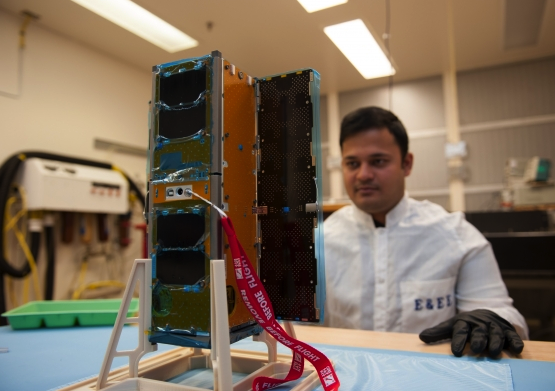The Australian government announced at the 68th International Astronautical Congress (IAC) in Adelaide that it was committed to establishing a national space agency. Also at IAC, Australia and France unveiled plans for closer cooperation in space.
On the opening day of the 68th International Astronautical Congress (IAC) held in Adelaide from 25th to 29th September, the Australian government confirmed its commitment to establishing a national space agency to ensure Australia has a long-term plan to grow its domestic space industry.
Australia is already involved in the small satellite sector. In April, three Australian satellites – the first in 15 years – blasted off from Cape Canaveral and were deployed in May from the International Space Station to study the thermosphere. Two were built at the Australian Centre for Space Engineering Research (ACSER) while the third was built by the University of Adelaide and the University of South Australia.
ACSER also built space GPS hardware and software for Project Biarri, a cubesat mission by Australia’s Defence Science and Technology Group that is part of the Five Eyes defence agreement with Canada, New Zealand, the United Kingdom and the United States. The satellite was also launched this year.
At the IAC event, France and Australia announced a new partnership in the space sector. The two countries aim to build on more than 40 years of cooperation, most recently illustrated by the PILOT astronomy mission in April, when a stratospheric balloon was released from Alice Springs. It was the second flight of the PILOT experiment, which consists of a stratospheric balloon with a scientific gondola containing an astronomy instrument that measures electromagnetic radiation at submillimetre wavelengths.
Dialogue between Paris and Canberra has intensified over the past two years, leading to the decision in March 2017 to include space in the two countries’ strategic partnership. A Letter of Intent was signed during the IAC Congress by Trevor Power, Head of the Industry Growth Division at Australia’s Department of Industry, Innovation and Science, and Jean-Yves Le Gall, president of France’s CNES space agency.
The first measures taken as part of this cooperation include an MoU between CNES and the University of New South Wales (UNSW). UNSW Canberra will host Australia’s first concurrent design facility, in partnership with CNES, that could be used to design future joint missions. Professor Russell Boyce, Director of UNSW Canberra Space, said the facility provided the infrastructure to capture the critical design elements of a space mission. The CNES software and training would link these elements into an engineering model of the entire system.
CNES has also concluded an agreement with Australian start-up Fleet Space Technologies to investigate future satellite constellations.

